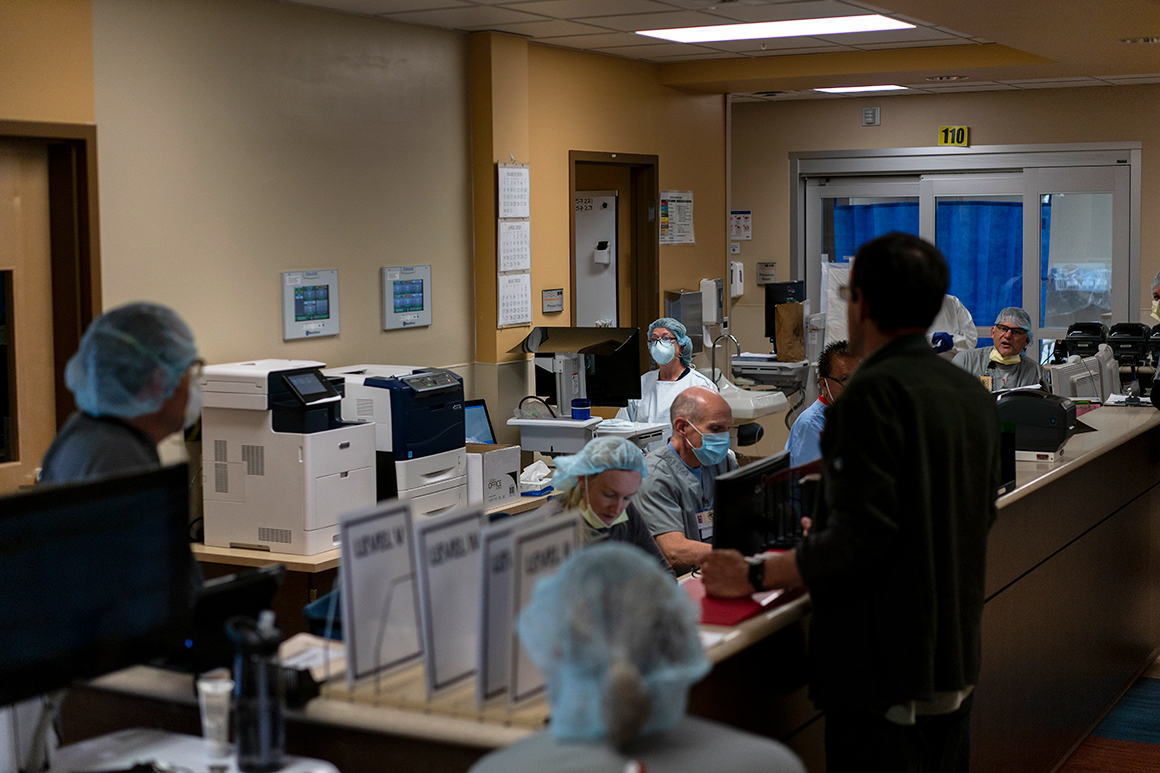
That has left UIHI and the other tribal epidemiology centers without access to core data about the coronavirus’s spread nationwide, hampering efforts to track the disease across Native American populations and understand how and why it’s killing tribal citizens in some areas at disproportionate rates.
Indigenous people have a higher Covid-19 mortality rate than whites, Asians and Latinos, according to an analysis by APM Research Lab. And in hard-hit New Mexico, Native Americans account for nearly 60 percent of coronvirus deaths but just 8.8 percent of the population.
Last month, the Indian Health Service’s chief medical officer, Michael Toedt, claimed on a press call that that his agency and the CDC had a mechanism to address data-sharing disputes between tribal organizations and departments of health. But a CDC spokesperson claimed to not know about any data-sharing complications, and pointed to how the agency sent 15 experts to the Navajo Nation to assist with epidemiology and contact tracing.
“If you can’t measure [the coronavirus,] you can’t manage it,” said Stacy Bohlen, the executive director of the National Indian Health Board, which provides policy expertise to the 560 federally recognized Native American tribes. “It’s another chronic failing of what Indian people experience across the health system. We know it’s happening across the country.”
Tribal leaders have also hit roadblocks at the local level. The Bay Mills Indian Community in northern Michigan couldn’t get Covid-19 data from surrounding Chippewa County after one of its members who worked as a guard at a local prison reported he was in sustained contact with a coronavirus patient. It took a showdown with the state before the tribal leaders won an agreement to share disease surveillance information with the state corrections department.
“It was a pretty heated exchange with the state, [we] said you guys are not an island,” said Bryan Newland, chair of the Bay Mills Indian Community. “Your officers clock out and go into the community, we need to know about this stuff.”
Newland said Chippewa County continues to refuse to enter into an agreement with the tribe on surveillance and contact tracing. County officials didn’t return repeated requests for comment.
„We had never taken the time to foster a working relationship with our local health department,” Newland said. “There was never an occasion to give a lot of thought to our relationship and how to foster it.”
State officials in Massachusetts this spring cited privacy concerns in turning away a request for coronavirus data from the Wampanoag Tribe of Gay Head/Aquinnah, which had asserted its right as a federally recognized nation and was trying to assist Covid-19 patients released from hospitals, said the tribe’s chair, Cheryl Andrews-Maltais.
The tribe persisted, only to learn the state lumped Native American patients in with those from other racial categories. While it’s since obtained a more thorough breakdown, the delay left the tribe flying blind, she said.
Massachusetts is one of at least two dozen states that either groups Native Americans into an „other“ racial category as part of its coronavirus data, or doesn’t track Native American case or death data at all. The group includes New York and New Jersey, which have among the largest urban concentrations of American Indians in the U.S.
Tribal leaders attribute the difficulties accessing data to a lack of knowledge of how Native American communities function and local authorities’ lack of interest in working with them.
Tribal organizations are supposed to deal directly with the federal government, because of longstanding federal trust obligations that established them as sovereign entities.
But the Trump administration has largely directed tribes to work with state and local officials on coronavirus issues, including obtaining medical supplies and coordinating response efforts.
That’s left the tribes trying to build new relationships during a public health crisis. The Indian Health Service — the main federal agency charged with caring for American Indians and Alaska Natives — does not keep data on hospitalizations or mortality rates for signs of emerging outbreaks, said Fawn Sharp, the president of the National Congress of American Indians.
Sharp enumerated those and other challenges last week at a briefing of the House Coronavirus Crisis Subcommittee, pointing to limited testing in Native American communities and the routine misclassification of Native Americans in local health data.
“The United States has chronically underfunded every sector of our health and socioeconomic life, creating a crisis in the 21st century that deeply affects our public health, our economy and our social life,” she said.
Yet over the course of the briefing’s subsequent hour and a half of discussions, only a single lawmaker followed up to ask Sharp a question.
Source: politico.com
See more here: news365.stream






